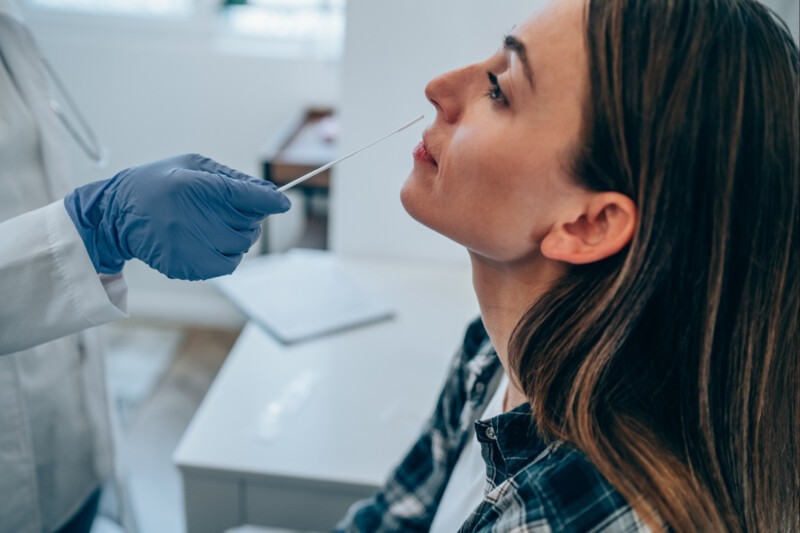With the delisting of virological tests for Covid-19, obtaining a health pass has become a paying proposition. What about PCR tests for salaried and non-salaried activities? Can testing be considered a business expense? What is the position of the French Ministry of Labor and Social Security? Are there any exceptions? Here's an update on all these questions.

End of reimbursement for PCR tests
As of October 15, 2021, Covid-19 virological tests will no longer be systematically reimbursed. The end of reimbursement of RT-PCR and antigenic tests by the French health insurance system, except for medical reasons, is part of the government's health policy to encourage people to get vaccinated.
Tests are still free of charge for symptomatic people and contact cases. However, unvaccinated persons wishing to obtain a health pass to go to a place where it is required must pay €22 for an antigenic test and €44 for a PCR test.
The general principle established by the Ministry of Labour
The question soon arose as to whether or not PCR tests should be considered as business expenses that could be reimbursed by the employer. This is particularly the case for unvaccinated employees who are required to present a health pass as part of their professional activity. The French Ministry of Labor has ruled in principle that PCR tests are not business expenses that can be reimbursed by the employer.
In practical terms, however, companies may decide to compensate their employees for Covid-19 screening tests. However, this payment is considered a benefit in kind, and must be included in the employee's social security contributions.
The only cases in which PCR tests are considered business expenses are the following
In a December 2021 update of the Bulletin Officiel de la Sécurité Sociale (BOSS), the Direction de la Sécurité Sociale (DSS) considers that: "the costs incurred to carry out a virological test pending validation of a complete vaccination schedule do not constitute a professional expense, insofar as the obligation to hold a vaccination pass applies to all people who frequent these places."
However, the DSS distinguishes certain situations in which the PCR test is recognized as a professional expense. In these cases, the following conditions must be met:
- The employee must present a negative virological test on a one-off basis.
- This negative test is required for a specific assignment carried out at the express request of the employer.
- There is no alternative to PCR testing for this task (vaccination alone is not recognized).
This is the case, for example, for employees required to travel abroad on business, where entry to a third country is conditional on presentation of a negative virological test. In this specific situation, the PCR test represents a reimbursable business expense, with no social security contributions.
The introduction of the "2G+" system
The "2G +" system, as the Germans call it, involves presenting both a full vaccination schedule and a health pass in certain establishments open to the public.
Should this hypothesis be applied within the framework of the law reinforcing health crisis management tools, the DSS could be led to reconsider the reimbursement of Covid-19 tests for people working in these locations. Indeed, the current principle is that PCR testing represents a professional expense in the absence of an alternative solution.
Does the principle of deducting PCR tests as business expenses apply to the self-employed?
For the moment, there is no case law or official source concerning the deduction of PCR tests as business expenses under the self-employed workers' scheme. If a freelancer has to carry out a PCR test to present a health pass as part of his or her assignment, and decides to deduct it from his or her overheads, this is a matter of free interpretation. It is then necessary to be able to justify this decision in the event of an audit by the tax authorities.
It should be remembered that the deduction of business expenses for the self-employed is similar in tax law to the actual expenses applied to salaried employees. The deduction of these expenses is precisely defined by law. For the most part, sickness and health-related expenses are not deductible, but there is nothing explicit about PCR tests.
